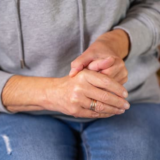Are we there yet? Tips for travelling
December 7, 2022 by Lisa Bywaters

Travelling can be an incredible adventure, but it can sometimes cause anxiety and stress if you have a chronic condition. When you’re out of your normal routine, it can be impossible to know how you’ll feel each day and how this may affect your trip.
Here are some tips and tricks to help you get the most out of your trip and have a fantastic time.
“I wish I had never gone travelling.” Said no one ever.
Plan your trip
Take time to plan your trip carefully. Being proactive before you go away allows you to plan around your condition rather than have your condition disrupt your trip. You know how your condition affects you – using this information when planning will put you in control.
Give yourself plenty of time to pack and complete any tasks or household chores you need to do well before the day you leave.
Rest up. Even though you may be going on a holiday for rest and relaxation, try and get some rest before you leave. That way, you’ll have more energy to do and see what you want when you arrive at your destination.
Make your itinerary realistic. When you’re on holiday, it’s tempting to pack as much as possible into every single day; however, this can often lead to increased pain and fatigue. Plan rest days or less active days and create an itinerary that’s flexible depending on how you feel each day. It’s better to do less and prevent flare-ups than do too much and end up unwell.
Minimise long journeys where possible. Living in Australia, we know long distances are a part of life, whether travelling overseas or within Australia. However, try to avoid packing your itinerary with long plane, train, car, or bus journeys if you can. Make a list of the key sights you want to see, plan your travel around them and be realistic. If you will be travelling for long periods, plan rest stops and consider layovers to make it more achievable.
If you’re travelling by plane or train, ask for an aisle seat and take strolls up and down the aisles. This’ll help reduce stiffness, and muscle and joint pain. You can also do leg and foot stretches and other gentle exercises while seated.
Consider informing the airline of your medical condition. With advance notice, the airline should be able to:
- provide you with wheelchair assistance and early boarding, if necessary
- have airline personnel carry your luggage for you and/or lift it into the overhead bin
- accommodate you with special shuttles and elevator platforms for boarding.
Talk with the transport operators before you leave. Contact the companies before your journey to see what assistance and services they can provide. This goes for all planes, trains, coaches, ships, boats – basically any form of transport operated by someone else. Let them know if you require help and if you have any mobility aids. Have the specifications of your mobility aids handy in case they need this information. Doing this before you go means the operators can be ready for your arrival and save you any potential stress or inconvenience.
Booking accommodation. When choosing your accommodation, always consider walking distance to other services, the number of stairs and the availability and location of lifts. Make sure you can drop your luggage off at your hotel if you arrive early – you don’t want to carry heavy bags any longer than necessary! Consider booking accommodation with a heated pool or spa, so you can exercise or relax in warm water to loosen sore muscles and ease painful joints.
“Oh, the places you’ll go.” — Dr Seuss
Packing for your trip
Pack light. Packing can be one of the hardest parts of travelling – what to take, what to leave at home – so if in doubt, leave it out. Lifting heavy bags on and off trains, buses and through airports increases your risk of injury and fatigue. When you travel, you also end up carting your luggage around more than you may realise. So packing light is essential. Check out some of the travel websites, articles, and blogs if you need tips and advice on packing.
Use lightweight luggage if you have it. If you’re buying new luggage, think lightweight and durable. Look for luggage with good wheels and handles that allow for easy manoeuvrability. A suitcase you can push rather than pull places the load squarely in front of you and means you don’t have to twist your wrists. If you don’t own lightweight luggage, see if you can borrow some from your family or friends.
Don’t forget to pack any special equipment or aids that help make life more comfortable, such as:
- supportive pillows
- lightweight hot/cold packs
- orthotics, splints or braces.
Consider wearing a mask and using hand sanitiser when you’re on planes, trains and other public transport. Although many of us have gotten out of this habit, COVID is still around. And nothing spoils a holiday faster than getting sick 🤒. Masking and sanitising are the best strategies to reduce your risk of this occurring.
Separate your medicine. Keep your medicine in separate pieces of luggage to ensure you don’t lose it all should a piece of luggage become lost or stolen. Only carry enough medicine that you need for your own personal use. Pack in your hand luggage any medicine you may need access to quickly so you can get to it when needed.
Organise your medicines. Being away from your usual routine can make it easy to forget to take your medicine/s at the appropriate time. If you take medicines every day, consider using a pillbox with separate compartments for each day (but keep the original packaging with you). More information on travelling overseas with medicine and medical devices can be found on the Therapeutic Goods Administration website.
Check size restrictions on luggage and mobility aids with your travel agent, airline or other transport operators.
“Once the travel bug bites there is no known antidote, and I know that I shall be happily infected until the end of my life.” Michael Palin
Medical preparation
Get advice well in advance. Ensure regular blood tests and doctor visits are done before you leave. Discuss any concerns you have about travelling with your doctor (e.g. whether you need to adjust your medicine schedule if travelling to a different time zone).
Talk with your doctor about vaccinations, especially if you’re going overseas. This protects your own health, but also some countries, airlines and cruise lines require proof of certain vaccinations before entering or boarding. The Smart Traveller website has more information about vaccinations and overseas travel. Note: Some vaccines should be avoided if you have an autoimmune condition or take medicines that suppress your immune system. Your doctor or rheumatologist can advise you on this.
Check that your medicines are legal and not restricted or banned where you’re going. You can do this by contacting the relevant consulate or embassy; a list is available on the Smart Traveller website. Carry a letter from your doctor listing your medicines, the dosage and what they’re for, as well as your doctor’s contact details. Keep medicines in their original packaging, or if you’re using a pillbox, keep the packaging with the pillbox.
For more information about medicines and travelling, read Travelling with medications: A guide by the International Association for Medical Assistance to Travellers.
Stock up. Make sure you have enough medicines (for your personal use) to last until you return home. You may not be able to get the same medicines elsewhere – especially if you’re overseas.
Store your biological medicines properly. If you’re taking biological medicines (biologics or biosimilars), they may need to be stored at a specific temperature in a special travel wallet. Seek advice from your rheumatologist and the pharmaceutical company about this. Check with your airline/s to see if they can assist you, for example, with ice for the travel wallet or placing your medicine in the aeroplane’s fridge.
Make sure your container is clearly labelled with your name and contact information, or attach your boarding pass. And make sure you don’t leave your medicine on the plane!
Don’t place your medicines in with your checked luggage. The baggage compartment gets extremely cold while the plane is in flight, and your medicine may freeze and be ruined.
Fridges away from home. Once you’re at your destination, you should be able to use the mini-fridge in your hotel room to store your biologics. You should check that the fridge is adjusted properly to a suitable temperature. Also, in some countries, the power in a hotel room turns off when you leave the room. Ask the hotel staff about this upon arrival.
Contact the pharmaceutical company that makes your biological meds before you travel. Most have a customer support line and are an excellent source of information on the correct storage of medicines.
“Once a year, go someplace you’ve never been before.” Dalai Lama
Travel insurance
Know what you’re covered for. You can get travel insurance if you have a pre-existing condition such as arthritis, but it’s vital that you understand precisely what your coverage provides and whether it’s adequate for your needs. Different types of travel insurance will have different limitations on what’s covered, so shop around. A medical declaration form may be required in some instances. To learn more, check out our information on travel insurance for people with a chronic illness.
Coming home
Rest up. After your trip, take a day or so to unpack and rest before returning to your normal routine. Contact your healthcare team if you have to reschedule any medical appointments or have symptoms that need attention.
Extra tips and references
Look after yourself. Even though you’re travelling, you should continue to do the things that help you manage your condition and pain at home, such as regular exercise, eating a healthy diet and getting enough quality sleep. They’ll contribute to good physical and mental health and wellbeing and help you keep pain and fatigue in check.
Getting around airports. Websites for all Australian international airports and domestic terminals have accessibility information, as do the individual airlines. Check these out before you go.
Give yourself plenty of time to make flights and connections and deal with your luggage. That way, you’re not rushing, which leads to stress and anxiety. Rushing can also make you push yourself too hard and lead to increased pain and fatigue.
Choose your meals carefully. Most airport and rest stop food choices are high-fat, high-salt, highly processed foods that promote inflammation. Carry healthy snacks, drink plenty of water, and drink alcohol and caffeine in moderation.
Check out the blogs of other travellers with special needs. Stories of other people who’ve visited the places you want to go to and who have accessibility needs are often great resources to help you plan your journey.
Take it easy, and have a great time! Remember, your trip is meant to be fun. Travel can be associated with both physical and mental stress that can be magnified if you have a health condition that causes you pain. So when planning your trip, factor in a plan B – just in case your original plan needs to be altered to allow you time to rest or take it easy. For example, if you’d planned a walking tour of a place you’re visiting, look into alternatives such as hop-on/hop-off bus tours or riding a bike. Build enough flexibility into your holiday to allow for these alterations so that you’re relaxed and not stressed about staying on schedule.
By planning your trip carefully, being flexible with your schedule, and taking your condition into account, you can have a fantastic holiday.
So get out there and enjoy yourself!
“We live in a wonderful world that is full of beauty, charm and adventure. There is no end to the adventures we can have if only we seek them with our eyes open.” Jawaharial Nehru
Contact our free national Help Line
Call our nurses if you have questions about managing your pain, musculoskeletal condition, treatment options, mental health issues, telehealth, or accessing services. They’re available weekdays between 9am-5pm on 1800 263 265; email (helpline@msk.org.au) or via Messenger.
More to explore
- 10 tips for pain-free travel with osteoarthritis
HealthCentral - Advice for mature and older travellers
Smart Traveller - Advice for travellers with a disability
Smart Traveller - How to manage your PBS medicine overseas
Department of Human Services - International Association for Medical Assistance to Travellers
- Nearly two-thirds of arthritis patients say they take fewer vacations because of their disease
Creaky Joints - Preventing joint pain on your summer travels
Hospital for Special Surgery - Smart Traveller
- Travelling with medicines and medical devices
Therapeutic Goods Administration














